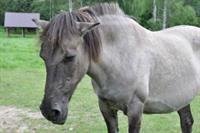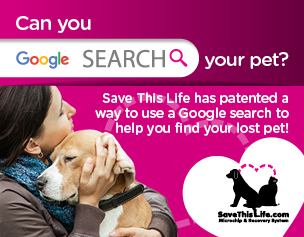Helping Clients Stop The Spread of Equine Herpesvirus

Commonly found in horses worldwide, the equine herpesvirus (EHV) occurs in several strains and can trigger devastating effects in an equine population. Highly contagious, EHV spreads rapidly to cause respiratory and neurological disease, and can cause abortions in pregnant mares. It is imperative that clients have background information to help protect their animals from this dangerous virus.
Spread of Disease
EHV spreads through the following means:
- Direct contact
- Infected horse coming into contact with uninfected horse
- Nose-to-nose contact
- Indirect contact
- Items used on an infected horse that becomes contaminated with discharge can pass on the virus
- Bridles, halters, leads, bits, and basically any riding equipment
- Grooming tools such as curries, brushes, and rags
- Shared water or feed buckets
- Clothing from a person who has contact with an infected horse can become contaminated
- Virus can travel via air through a cough or sneeze
- Contact of an EHV aborted fetus, placenta, or placental fluid
- Contact with a recovered EHV horse
- Recovered EHV horses can become latent carriers of the virus
- EHV may reactivate if the recovered horse is stressed or receives high doses of corticosteroids
Clinical Signs to Watch For
Although the incubation period of EHV can be as short as 24 hours, it generally lasts from 2 to 10 days. Clients of animals that have possibly been exposed to EHV need to know to watch for the following clinical signs:
- Fever
- The typical temperature of a horse is 99 to 101.5° Fahrenheit. The fever of an infected EHV horse will generally range from 102 to 107° Fahrenheit, and may last for 1 to 7 days
- Nasal discharge
- One of the most common visual symptoms, discharge will appear in both nostrils and can look clear and watery to mucous- or pus-like
- Enlarged lymph nodes
- Coughing
- Sneezing
- Off-feed
- Depression
- Hind limb paralysis or lying down and unable to get up
- Loss of bladder and tail function
- Abortion
Methods for Diagnosis by Veterinarian
Clients should be informed to contact their veterinarian whenever there is a fever present, especially when there has been contact with unfamiliar horses or with animals observed with runny noses or respiratory issues. The steps that the veterinarian will take to diagnose a case of EHV may include:
- Observe for clinical signs
- Physical examination
- Nose and throat swab
- Blood sample
- Tissue from an aborted fetus
Treatment
Since EHV is a virus, clients need to know that there is no complete cure. If the results from the test samples return with a diagnosis of EHV, the recovery of their animal may depend upon the degree of severity of the disease when treatment begins. Diagnosed horses with mild cases could take weeks to recover.
Supportive care given during treatment may include:
- Non-steroidal anti-inflammatory drugs to help:
- Reduce fever
- Ease pain
- Decrease inflammation
- Keep the animal comfortable which will help to regain lost appetite
- Antibiotics to help:
- Fight any secondary infections that may occur
Prevention
The steps to prevent EHV depend upon limiting the spread of the virus from infected to non-infected animals. The following herd management tips are essential to pass on to clients:
- Isolate any horses brought in from other locations or returning from equine-related events for a minimum of 3 to 4 weeks
- Keep pregnant mares away from any new horses or horses that frequently travel
- Reduce stressors to prevent a stress-induced reactivation of EHV in carrier horses
- Follow these recommendations for owners that travel with horses to equine events:
- Limit horse-to-horse contact
- Limit horse-to-human-to-horse contact
- Avoid the use of communal water sources
- Avoid sharing tack and equipment
- Take the temperature and monitor the health of a horse when it is away from home
- Isolate the animal and continue to take its temperature while watching for any clinical signs of disease once it is back home
- Immediately report a temperature over 102° Fahrenheit to their veterinarian.
While there is still a lot of information that can be passed on to equine clients, communicating this basic information may help to limit the spread of EHV.
For more information about equine herpesvirus, please contact a Covetrus representative today by calling 855.724.3461.


Working Here
Our team members are encouraged to be the best they can be... at Covetrus we believe we impact one another.
Learn MoreNews & Events
FDA Cautions Pet Owners Not to Feed Texas Tripe Inc. Raw Pet Food Due to Salmonella, Listeria Monocytogenes
The U.S. Food and Drug Administration is cautioning pet owners not to feed their pets any of the Texas Tripe brand raw frozen pet food listed below because several samples of Texas Tripe raw pet food have tested positive for Salmonella and/or L. mono.
Careers
Are you looking for a place to let your talents shine? At Covetrus, we help our practitioner customers better serve their patients and take pride in providing the best customer experience possible. Search our open positions to see our available opportunities.
Newsletter
Stay current with what’s going on with Covetrus, subscribe to receive our newsletter and email communications. Subscribers will receive the latest information in practice management, sales and marketing, animal health, and more.



-3-(1).png?sfvrsn=2d806d73_0)

Leave a comment